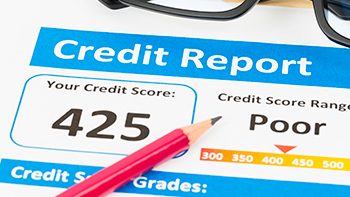
What You Should Know First
The first thing you should know about improving a credit score is that few people can improve their credit scores overnight. Typically, individuals who have low credit improve their credit scores over a long period of time. This can take several months or as long as several years, depending on the type of credit that you have. You should also be aware that not having any debt does not mean that you will have good credit. A credit score is based on an individual’s credit history. In order for you to have a credit history, you must have had some level of debt in the past or currently have some type of manageable debt. That being said, good or bad credit is not solely based on the debt that you have but rather on your history of paying off that debt and the relation of your debt to your income. If you owe more money than you currently make, this may negatively affect your credit score. If you have a history of not making credit card or loan payments on time, this can also negatively impact your credit.Paying Off Your Debt
For many people with a low credit score, paying any debt in a timely manner is usually the best way to clean up a credit score. If your score is due to maxed out credit cards, it is important that you manage your spending habits and begin making regular payments, especially if you can afford to make large payments on your cards. If necessary, you can speak with a credit counselor to help you learn how to budget your resources and come up with a plan to manage debt. Some tips for ensuring good credit history and boosting your credit score include:- Making credit card, loan and other credit payments on time.
- Increasing your percentage of available credit by paying down debt.
- Keeping balances low on credit cards.
- Paying off past-due bills and credit accounts you are behind on.
What to Do If There Are Errors on Your Credit Report
One way improve your report is to notify the credit agencies of any errors on a credit check. Some of the errors on a credit report can come from clerical mistakes when entering data like a Social Security Number (SSN) or when information for a person with a similar name was applied to your account. If you have a low credit score, first check to see if there are any errors on your report and fix them as necessary. Errors can include incorrect reports of late or misapplied payments. You can report the incorrect report by writing a letter to a credit reporting company, calling the company by phone or sending on online report. You may need to provide proof that the item on your report is incorrect. The FCRA holds credit agencies and organizations that provide them with credit information responsible for correcting inaccuracies on your credit report. If you notice any errors on your report, you have two options: alert the credit bureau or inform the information provider. Your first option is to inform the credit bureau of the inaccurate or incomplete information in writing. Credit bureaus are required to investigate any serious claim and inform you of the results, in addition to providing a free copy of your updated credit report if they make changes. In this situation, you may request that the bureau send notices to any party who viewed your report within the last six months. You may request a notice of correction be sent to employers and hiring managers who viewed your report over the last two years.What if I do not have a credit score?
If you attempt to receive your credit report but do not have a score assigned to your name, this simply means that you have not established enough credit to warrant a score and you need to begin building your credit. Individuals who are younger than 21 years of age can have their parents or legal guardians cosign their credit card, or they can be listed as an authorized user of their parent or guardian’s credit card to build responsible credit in an efficient manner. If you are older than 21 years of age, you may talk with your bank about acquiring a “secured” credit card. A secured credit card is a credit card that limits the amounts that you can spend in order to promote easy and consistent loan payments. Then, after some time slowly paying off these loans, your credit score should have started off on the right track.By Admin –